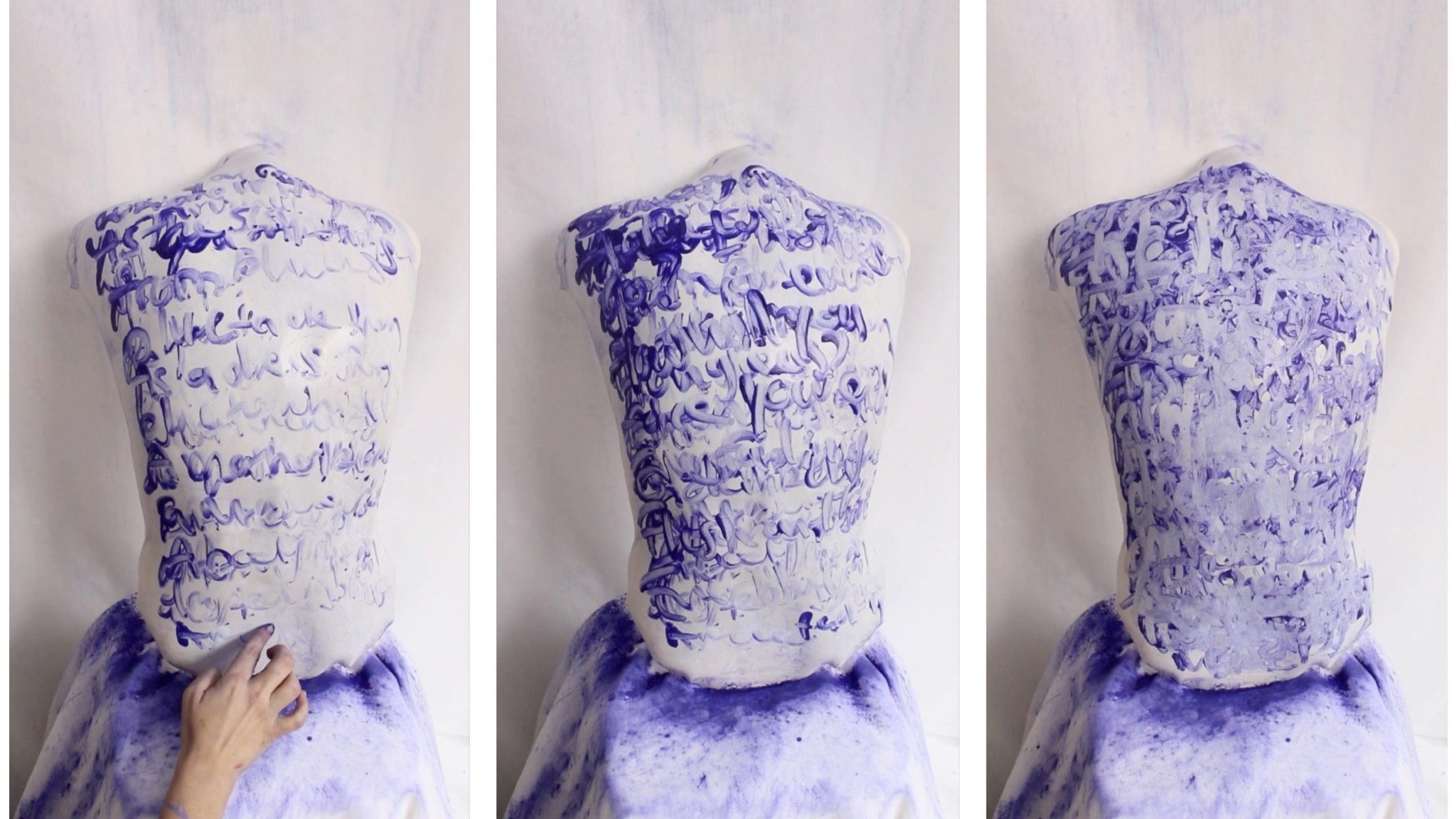South Africa, Visual Arts, 2021
Olivia
Botha

Born in 1991 in Bloemfontein, South Africa, and raised in Cape Town, multidisciplinary visual artist Olivia Botha works predominately in video performance, installation, painting, and poetry. Through a framework centering language and communication, she explores the different ways in which our relationships with people, objects, and memory affect our lived experiences.
After completing a BAFA degree from Michaelis School of Fine Art at the University of Cape Town in 2017, Botha spent a year in residence at the National Gallery of Bulawayo in Zimbabwe. She experimented with large-scale, mixed media installations, exploring the complexity of feeling like an outsider both in her home country and as a visitor in a foreign country. Although fluent in English, Botha’s mother tongue is Afrikaans, a West Germanic creole language that evolved during the nineteenth century under colonialism in southern Africa and is currently spoken by just 12% of South Africa’s population. Recognized as one of the eleven official languages of the “new” South Africa, Afrikaans is also negatively associated with the old apartheid regime as a tool used for social and cultural oppression. Artworks like Breaking a Curse (2018), Moeder Tong / Mother Tongue (2019), Dubbele Tong (2019), and the performance work Sit with me (2019) engage directly with the misinterpretation that arises when translating words from one language into another. Sometimes these misunderstandings are literal when the meanings of words and phrases are “lost in translation” or the speaker is physically tongue-tied. At other times, meaning is misrepresented through the paradox of trying to communicate non-verbal sociocultural norms using words.
In 2018 Botha received the Cassirer Welz Award and the opportunity to spend ten weeks in residence at the Bag Factory in Johannesburg, creating a new body of work for her first major solo exhibition Things Left Unsaid (2019) at SMAC Gallery. During her residency, Botha drew on a deeply personal narrative after receiving news that her maternal grandmother, a woman who had lived a cloistered life as part of a small religious sect called the Blou Rokke (blue dresses), was dying. Contemplating the transcendence from life to death through a process of rediscovering lost yet not forgotten intergenerational memories, Botha worked through a historical legacy of silence and trauma spanning three generations of women. Ghostly images of her grandmother painted in blue pigment on white fabric hung like shrouds, signifying the fragile veil between life and death.
Working under the constraints of the Covid-19 pandemic and physical lockdown throughout 2020, Botha immersed herself in the medium of watercolor on paper and diluted oil paint on thin board, resulting in a frenzied and prolific body of portrait paintings. Featuring an array of spectral characters from memories past and present, mystical dream-like figures blur into disfigured and monstrous, nightmarish ghouls. Her more recent paintings, produced at home in Cape Town after living away for more than three years, are more human in their personal reference to the artist’s familial heritage. They reflect a yearning for (re)connection when such desires are unfeasible during a time of intentional social and physical distancing.
Text: Candice Allison

